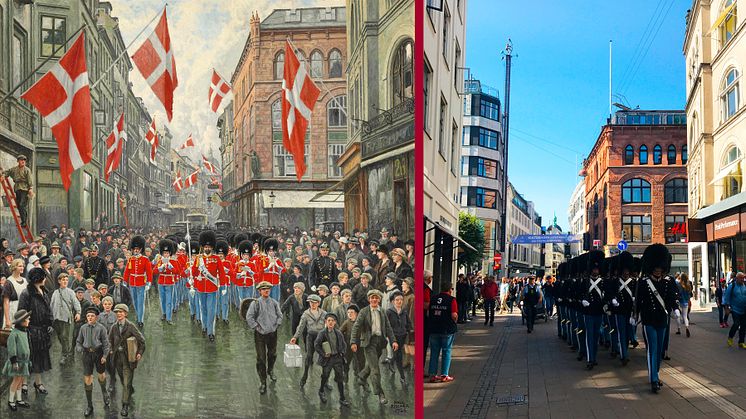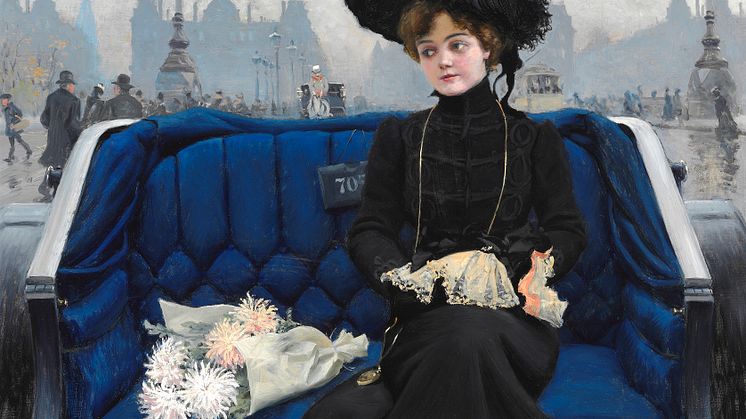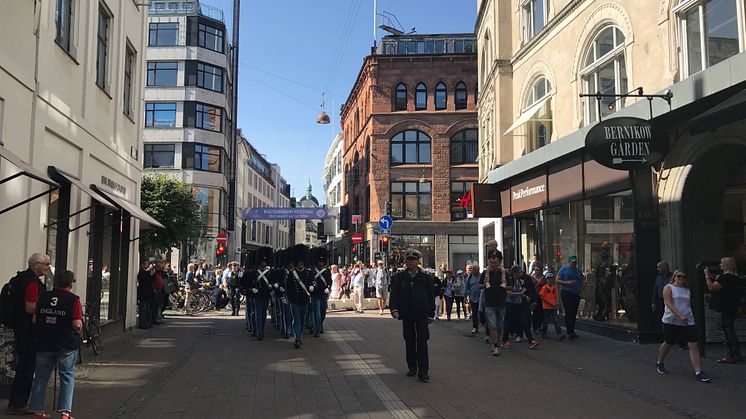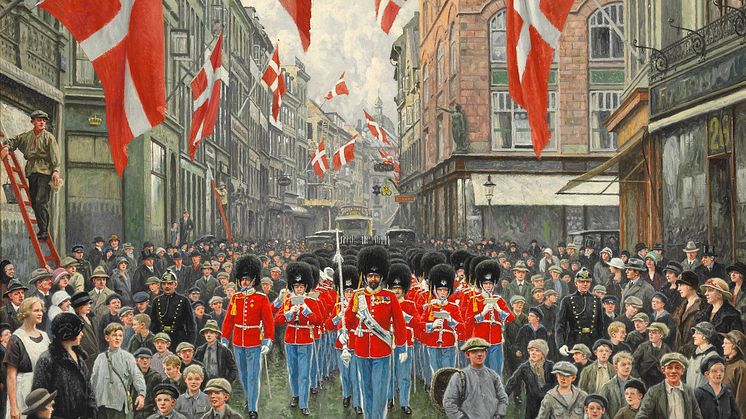
Press release -
Celebrating Paul Fischer's Copenhagen
At this autumn’s international auction in Copenhagen, we celebrate the 850th anniversary of the city with a series of works by Paul Fischer, the Copenhagen painter par excellence. More than anyone else, he knew how to depict the hustle and bustle of the Danish capital around the year 1900.
"No one has shown us the city’s streets, buildings and public life as eminently as he has. The atmospheric paintings are an illustration of a time around 1900, where the city had gotten rid of its surrounding fortifications and was turning into a modern metropolitan area with new means of transportation, large crowds of people and a flourish of building activity," says Julie Arendse Voss, head of the fine art department at Bruun Rasmussen Auctioneers. "The topography is easily recognizable, and as a backdrop for his images Fischer often focused on the streets and open squares of the old city centre between Kongens Nytorv and Rådhuspladsen. In a festive painting from 1925, the Queen’s Royal Guard marches in their dress uniforms through the pedestrian shopping street Strøget on the occasion of Christian X's birthday".
At the auction, we also meet other representatives from Fischer's regular gallery of figures: the fishwives at Gammel Strand, men shovelling snow at the Church of Our Lady and the fashionably dressed ladies of the bourgeoisie at Rådhuspladsen.
The Lady in the Horse-drawn Carriage
But we also journey outside the city centre with one of Paul Fischer's truly unique paintings. Here a young lady named Jenny Bröchner sits in a horse-drawn carriage travelling across Queen Louise’s Bridge towards Nørrebrogade. She is elegantly dressed in a dark dress and feathered hat, and with an enigmatic expression in her eyes she looks into the distance, while the hustle and bustle of the city fills the background. Fischer is outside his geographical comfort zone with this painting – and the question remains: Where is the lovely lady headed? Finding inspiration in French art, Fischer has framed the image so that the young woman is positioned surprisingly close to the viewer. The painting, which was made in 1902, contains a distinctive Parisian mood. It was purchased directly from the artist by the present owner's great grandfather and has been in the same family's possession for more than a hundred years.
Copenhagen as a Modern City
At the time of Paul Fischer, the city evolved from being a sleepy and closed-off fortress town, surrounded by ramparts, embankments, moats and city gates to an open, modern city. In the second half of the 19th century, industrialization was in full swing and people moved in droves from the troubled farming communities seeking their fortune in the Danish capital. The place was cramped, and Copenhagen could no longer accommodate its inhabitants. In the 1880s the demolition of Christian IV's old fortifications was completed, thereby paving the road for the city's expansion. This resulted in a massive building activity and the construction of wide boulevards, public squares and green parks, such as H.C. Andersens Boulevard in 1890, Rådhuspladsen in 1905 and the public parks Ørsted Park, Østre Anlæg and Botanisk Have in the 1870s.
The New Big City Mentality
It was now possible to move freely in and out of the city, but the Copenhageners had to remove their mental ramparts as well in order to get used to the changes. The development had a profound influence on the mentality of the inhabitants, and the new metropolitan experience quickly found its way into art. The painters not only found new motifs in the vibrant metropolis – they also tried via a whole new idiom to capture the fleeting moments of life in the city. With inspiration from French art, it was Fischer who in Denmark was most dedicated to place an emphasis on the big city and its changes. Today, we know of at least 500 paintings from his hand.
Auction: 19 September at 4 pm in Bredgade 33 in Copenhagen
Preview: 14-18 September at the same address
View all the lots with paintings by Paul Fischer
.
Topics
Bruun Rasmussen Auctioneers is one of Scandinavia’s leading international auction houses, and one of Denmark’s oldest. It all started on 6 October 1948, when Arne Bruun Rasmussen conducted the first traditional auction in the saleroom at Bredgade 33 in Copenhagen. Today, Jesper Bruun Rasmussen stands at the helm of the family-run business together with the third generation of the family, his son Frederik and daughter Alexa, and the company’s CEO Jakob Dupont.
In 2004, the first online auction was launched, and today the auction house has expanded to include departments in Copenhagen and Aarhus and representations in Sweden, Germany, France, Belgium, Luxemburg, Spain, Italy, Thailand and the US. About 100,000 lots are put up for auction each year at the traditional auctions and daily online auctions. Here you can bid on everything from art, antiques, modern design and jewellery to books, coins, stamps, wine and weaponry.




